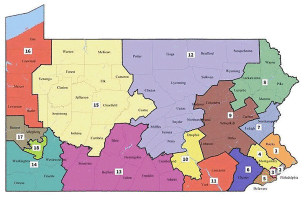By Jim Ellis

New Pennsylvania Congressional Map | Source: Pennsylvania State Supreme Court (click on image to see full size)
In the Republican wave election of 2010, Marino ousted then-Rep. Chris Carney (D) by a 55-45 percent margin and has averaged 66.1 percent of the vote in his subsequent re-elections. The 2018 Pennsylvania court-ordered redistricting plan re-numbered his 10th Congressional District to 12 and created a seat where 68 percent of the constituency carried over from the previous district.
In 2017, President Trump nominated Rep. Marino as the Director of the Office of National Drug Control Policy, commonly referred to as the nation’s “drug czar.” But the congressman withdrew his name when experiencing some negative reaction during the confirmation process.
The 12th District will now go into a special election cycle. After the seat becomes officially vacant on Jan. 23, Gov. Tom Wolf (D) will have 10 days to issue a writ of election to fill the newly open seat. The various political parties will meet in special conventions to choose their nominees, with the winners proceeding to an election date that the governor will assign. It is most likely he will schedule the 12th District special to run concurrently with the Pennsylvania municipal primary, which is calendared for May 21.






